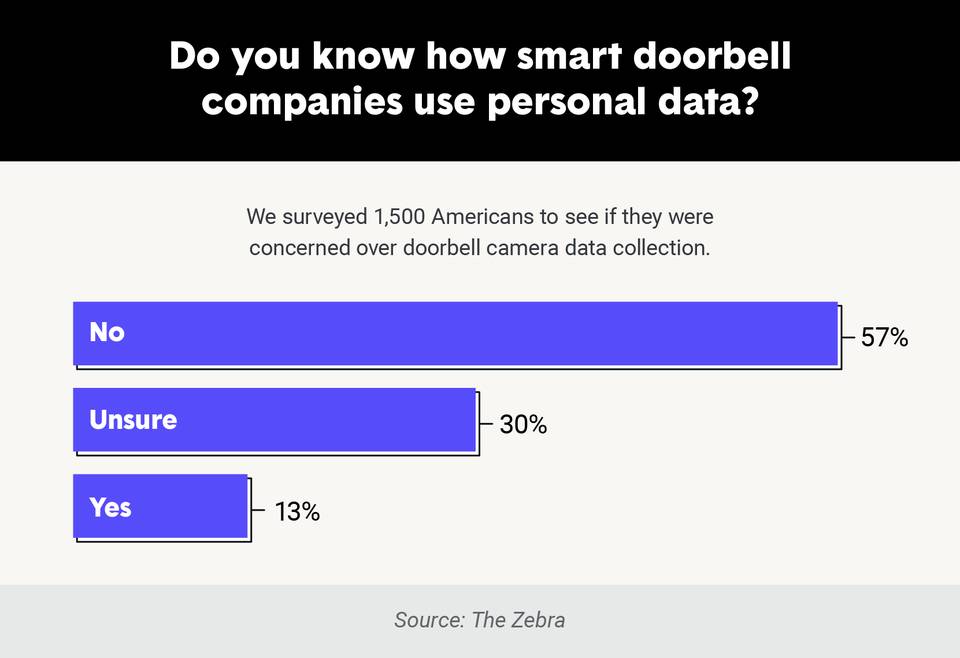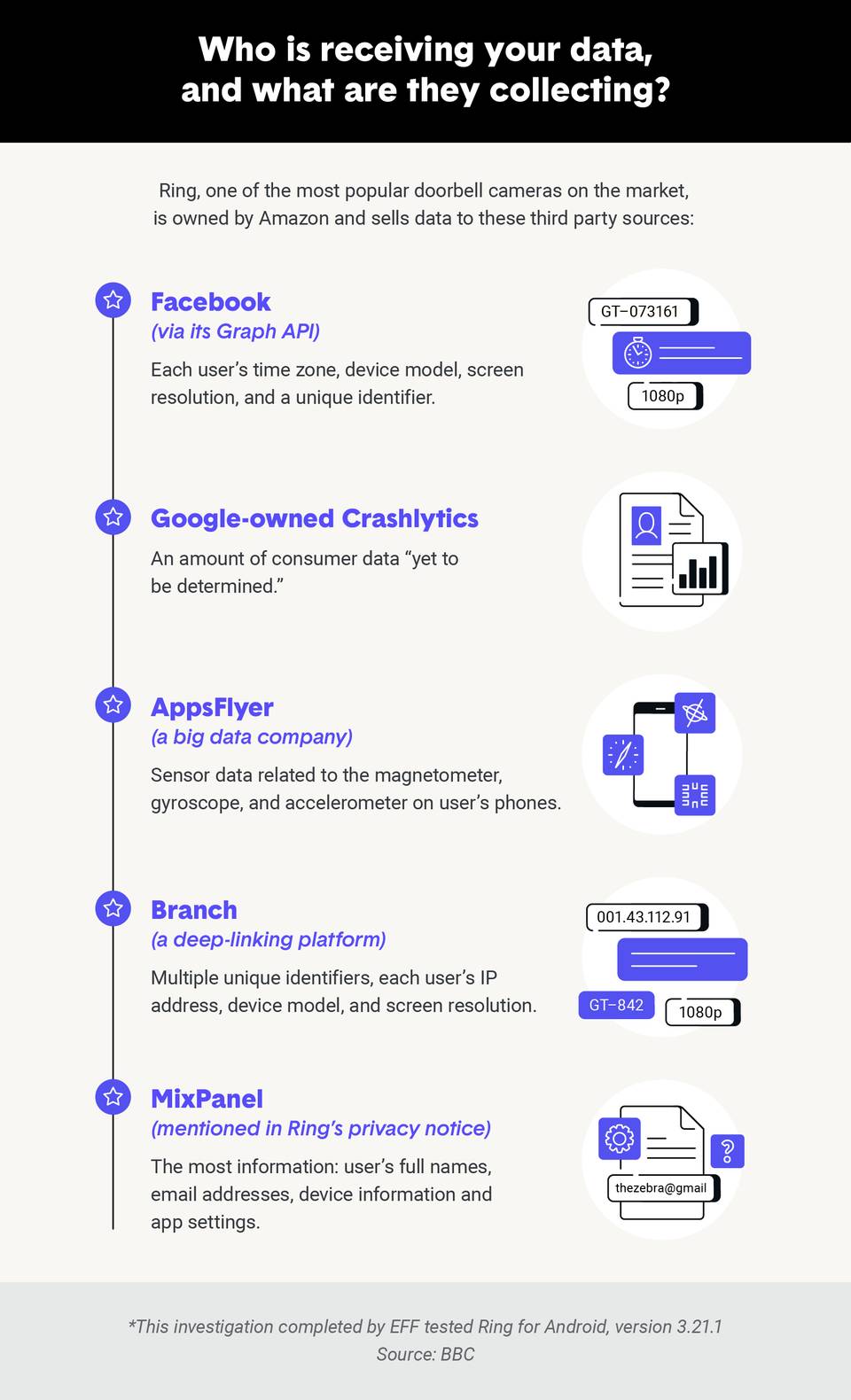Perhaps smart doorbell cameras should come with a warning label: purchase at your own privacy risk. Home security technology has generated high sales — and controversy — since Nest was acquired by Google in 2014. Privacy concerns have grown louder since Amazon purchased Ring in 2018 for $1 billion.
While the thought of tech companies surveilling your yard and neighborhood may seem inherently creepy, doorbell cameras make many consumers feel safer — which explains why the devices continue to fly off the shelves. Smart doorbell camera technology opens homeowners and their families up to a slew of new privacy risks, in part because of the data the cameras gather and redistribute.
Our survey asked Americans whether they knew their doorbell cameras were collecting data on them.
Our findings revealed:
- Only 13% of Americans know how smart doorbell companies use personal data, while 87% don’t know or are unsure.
- 93% of Americans say they wouldn’t buy a doorbell camera if it collected and sold data about their family.
Despite our results showing Americans’ discomfort with doorbell companies sharing data, popular doorbell companies such as Ring do just that. Read on to discover how doorbell cameras may be putting our privacy rights at risk, or jump to our infographic to learn more about how doorbell cameras collect data.





